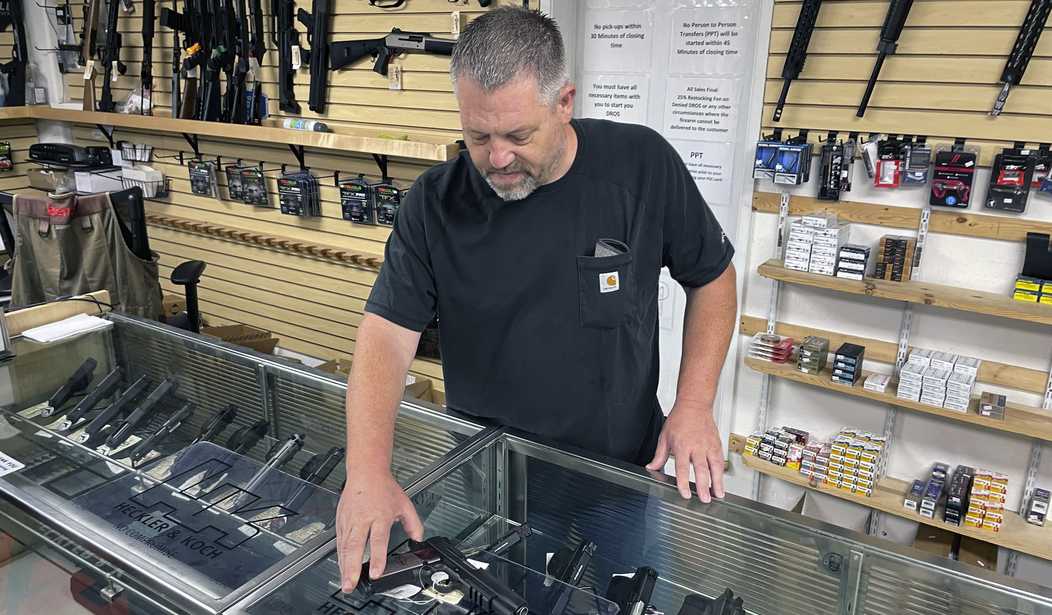If someone wants to give up their guns for whatever reason, that's certainly their right. The right to keep and bear arms doesn't come with an obligation to do so. Not everyone is interested in owning them and sometimes, people change and those that once owned them decide they don't want to anymore.
As long as those folks don't try to inhibit the rights of the rest of us to own them, I wish them the best.
But in some states, there's been this bizarre push to allow people to declare themselves prohibited people, at least for a time. Delaware just became the latest state to do just that. However, there are issues with the law.
Gun-ban advocates in Delaware are cheering after Gov. John Carney signed four anti-gun measures on Aug. 15.
“We’ve made a lot of progress to keep our communities safer since the start of this administration,” Gov. Carney said at the signing. “The pieces of legislation we signed today and the other steps we’ve taken would not have been possible without the dedication of advocates who demanded action across our state, and our legislative partners in the General Assembly.”
House Bill 342 provides a way for lawful gun owners to voluntarily give up their Second Amendment rights without really providing a way to have those rights reinstated. In essence it establishes a program for those who wish to temporarily waive their own ability to purchase or otherwise obtain guns. While supporters say the law has a method to be removed from the “list,” it remains to be seen how that will work in practice. For one thing, a person could not have their rights reinstated for at least 60 days.
Of course, a person scheming to shoot up a school or other public place would never submit his or herself to such a list, nor would violent criminals who regularly use guns in commission of crime. Consequently, the chances that the law will have any impact on what supporters call “gun violence” are slim to none.
And let's be real here, slim left town a long time ago.
The whole 60-day thing seems to pop up a lot, and I don't understand where it comes from. Do they not think someone can get past whatever drove them to put themselves on the list sooner? Moreover, if it's completely voluntary, why is there any difficulty in removing yourself from that list?
Inquiring minds want to know.
But let's also remember that in states where this law exists, there are remarkably few takers. Most people who contemplate taking their own lives typically seek help for the ideation itself. They don't start looking at putting themselves on a list to not be able to get a gun. Most don't even think about that.
Of those few who have put themselves on the list, at least some of them are anti-gunners who were never going to buy a gun anyway, but figured they'd make a statement by putting their names in.
And, as noted above, mass shooters absolutely won't put themselves on any such list. I have yet to see any evidence that any of them are the least bit alarmed by the intrusive thoughts in the first place.
So what's this measure for?
It's to simply help continue to create the perception that guns are the problem and they must be removed from the equation at every possible opportunity. Additionally, by making it less than simple to remove one's name from the database, they may well create an entire new classification of prohibited people, all because someone tried to do what they were told was the right thing.
Laws like this are terrible, not because they allow choice on the matter of rights, but because they only have the thinnest illusion of choice. If it was really about people making decisions for themselves, it would be simple to remove your name from the computer at any point you so desire. Since that's not the case, Delaware tipped their hands.
Since that looks like a lot of the similar laws out there, well, we see what this is really all about.








